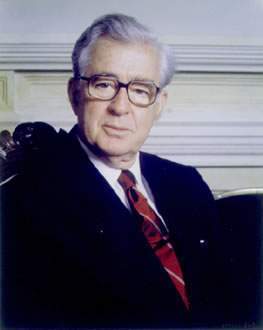Virgilio Barco Vargas
( politician, engineer) | ||||||||||||
|---|---|---|---|---|---|---|---|---|---|---|---|---|
 | ||||||||||||
| Born | 17 September 1921 | |||||||||||
| Died | 20 May 1997 (Age 75) | |||||||||||
Cause of death | cancer | |||||||||||
| Nationality | Colombian | |||||||||||
| Interests | ||||||||||||
Colombian president who asked Mossad for help to exterminate opposition.
| ||||||||||||
Virgilio Barco Vargas was president of Colombia from 1986 until 1990.
Amnesty trap
Barco Vargas personally approved an extermination campaign while in office against members and supporters of the left-wing Patriotic Union (UP) political party.
The UP was founded in 1985 under the terms of the recently-signed peace agreement between Barco’s predecessor, Belisario Betancur, and the FARC guerrilla movement. Following a number of modest UP gains in regional and municipal elections, state security forces and paramilitaries launched a violent campaign – often referred to in Colombia as a ‘political genocide’ – to eradicate the party, killing thousands of UP members, including presidential candidates. According to the National Centre for Historical Memory (CNMH), 3,122 UP members were killed, while close to another 3,000 suffered forced disappearances, forced displacement, torture and other human rights violations.[1]
According to an investigation by Colombian journalist Alberto Donadio, Barco secretly brought the veteran Mossad officer Rafi Eitan to Colombia on August 7, 1986, seeking advice on how to defeat the FARC. After an initial clandestine meeting in Colombia’s presidential palace, Eitan spent months touring the country with Colombian advisors, secretly funded by the Colombian energy giant Ecopetrol. During the second meeting, President Barco explained Eitan's recommendation to the Secretary-General of the Presidency, Germán Montoya, and a figure from the high military command present. Eitan even offered to preside over the killings himself in exchange for another honorarium, but the military commander rejected his offer, insisting that an all-Colombian force carry it out.[2]
By 2002, the Patriotic Union had been so thoroughly wiped out that it failed to meet the electoral threshold and the government removed the party’s legal status.[3]
References
- ↑ https://justiceforcolombia.org/news/then-colombian-president-backed-extermination-campaign-against-political-party/
- ↑ https://mronline.org/2021/06/05/new-investigation-reveals-role-of-israeli-operatives-in-colombias-political-genocide/
- ↑ https://www.elpais.com.co/colombia/la-union-patriotica-un-partido-que-busca-su-resurreccion.html